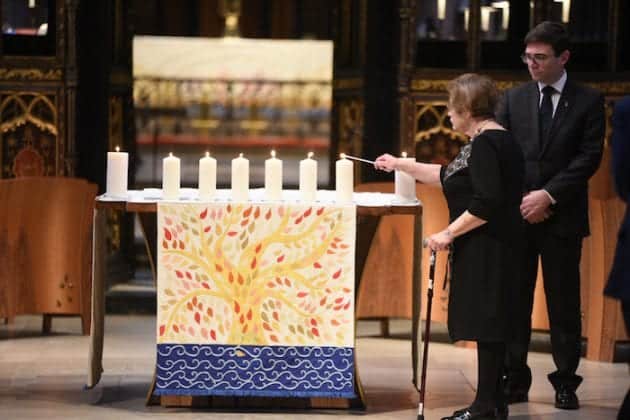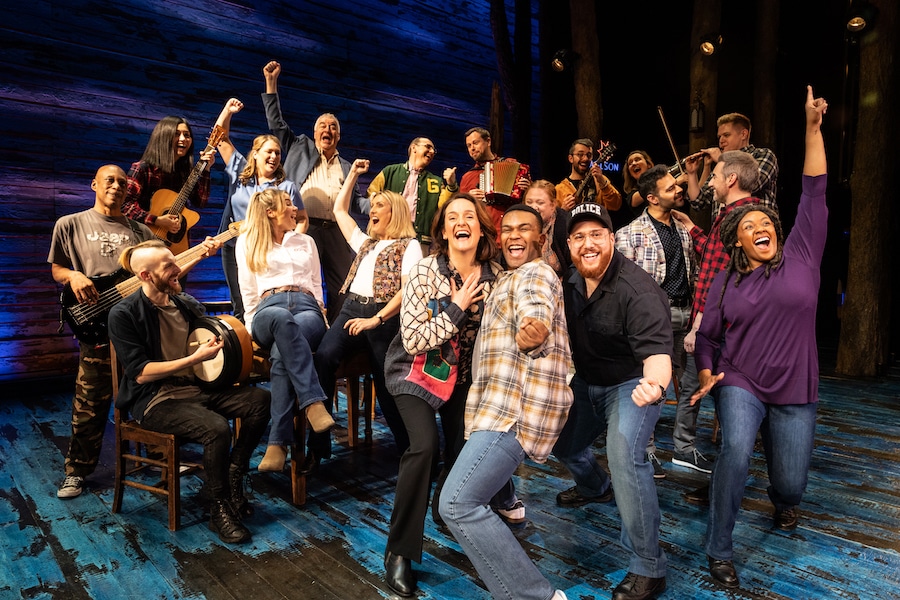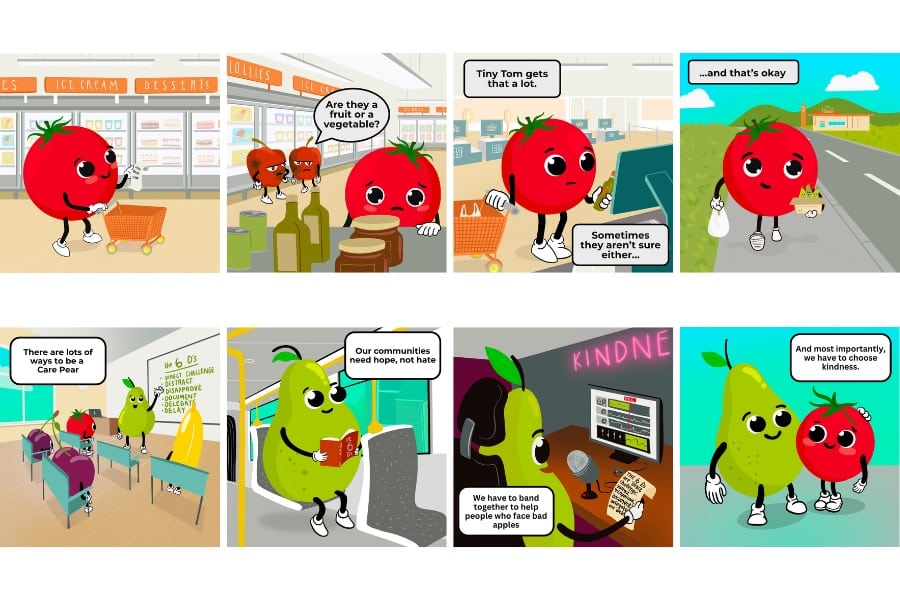Review: The Book of Will at the Octagon Theatre is ‘a fantastic homage to a legend’
- Written by Annalise Bennett
- Last updated 2 years ago
- Bolton, Theatre

Lotte Wakeham directs the words of American playwright Lauren Gunderson, author of the playbook, who drew inspiration from the true story behind the printing of Shakespeare’s First Folio – and the timing could not be more perfect, marking the 400th anniversary of its publication!
A cast of ten brings to life over twenty characters between them, creating an incredibly funny and spectacular homage to Shakespeare and a wonderful tribute to the theatre.
It is around 1619 and Shakespeare has been dead for almost three years.
The remnants of the King’s Men, the acting company which Shakespeare spent most of his career writing for and performing with, are surrounded by shoddy pirated versions of his work.
Henry Condell, John Heminges, and Richard Burbage still perform with the group, remaining as loyal as ever to Shakespeare, keeping his words alive.
But one night after being witness to a particularly dreadful production of Hamlet, they’ve had enough.
They figure they need to do something to prevent Shakespeare’s words from being lost to history, otherwise, they would die with them.
Actors in this day only learn the lines of their characters, so a cohesive script of every word, cue, and stage movement was very rare.
This was to obstruct any attempt at plagiarism, though seemingly, people found a way.
Instead, Condell, Heminges, and Burbage recite the roles from their memories and put these with what is left with what they can find in Shakespeare’s documents.
It takes years of work and dedication, with loss and triumph along the way.
This production of The Book of Will is chock full of talent, and there are a few names and faces you might recognise!
All but two of the cast take on multiple roles, greatly exhibiting their talents, while Russell Richardson and Bill Ward, who embody John and Henry, respectively, are hardly offstage.
Jessica Ellis, most recognisable from her role in Hollyoaks, plays Alice Heminges, daughter of John who is the voice for Shakespeare’s female characters, contributing by recounting the lines of her favourite parts.
Zach Lee doubles as Burbage and William Jaggard, convincingly portraying a loyal friend of Shakespeare and then profit sucking publisher.
Helen Pearson and Carrie Quinlan primarily depict strong but loving wives, Rebecca Heminges and Elizabeth Condell, while equally contributing to the Book of Will.
Tomi Ogbaro, Callum Sim, and Tarek Slater are brilliant in their multitasking, and Andrew Whitehead plays the poet laureate Ben Jonson, a complicated position wherein he rivals Shakespeare, but was also his friend.
The Book of Will was designed within the Octagon, meaning that the play was directed to take complete advantage of the intimate round setting and multiple entranceways.
The set, built and painted by Queen’s Theatre workshop department, is simple enough, with a long wooden table, a couple of benches and two stools used to transport us within the warming embrace of the Heminges’ tavern which later morphs into a makeshift writing space.
These pieces of set are multifunctional, aiding to depict various location changes, including the garden of Shakespeare’s home in Stratford, and the inside of a printing office.
For the ceiling, a round piece of set has been painted to represent that of stained glass, with vivid blues and illustrations of the sun.
From this hangs what looks like a candelabrum, setting the scene of the tavern. In terms of props, predominant is the steel beer mugs that are drunk from by nearly all the characters and topped up again by Alice.
These are equally multifunction, as when they are not being drunk out of, they are simultaneously struck against the table at the same time as a lighting blackout to symbolise the end of a scene, which is very effective.
The Book of Will is a great show.
Audiences of any description could find an appreciation for Shakespeare while watching this performance. It is a great homage to him without being just another recreation of his work, and you are not required to be well-versed in Shakespeare to enjoy the show.
The cast is fantastic and it is a testament to their ability and the writing that a production with themes as dark as death can still be light-hearted and meaningful.
- This article was last updated 2 years ago.
- It was first published on 19 May 2023 and is subject to be updated from time to time. Please refresh or return to see the latest version.
Did we miss something? Let us know: [email protected]
Want to be the first to receive all the latest news stories, what’s on and events from the heart of Manchester? Sign up here.
Manchester is a successful city, but many people suffer. I Love Manchester helps raise awareness and funds to help improve the lives and prospects of people across Greater Manchester – and we can’t do it without your help. So please support us with what you can so we can continue to spread the love. Thank you in advance!
An email you’ll love. Subscribe to our newsletter to get the latest news stories delivered direct to your inbox.
Got a story worth sharing?
What’s the story? We are all ears when it comes to positive news and inspiring stories. You can send story ideas to [email protected]
While we can’t guarantee to publish everything, we will always consider any enquiry or idea that promotes:
- Independent new openings
- Human interest
- Not-for-profit organisations
- Community Interest Companies (CiCs) and projects
- Charities and charitable initiatives
- Affordability and offers saving people over 20%
For anything else, don’t hesitate to get in touch with us about advertorials (from £350+VAT) and advertising opportunities: [email protected]
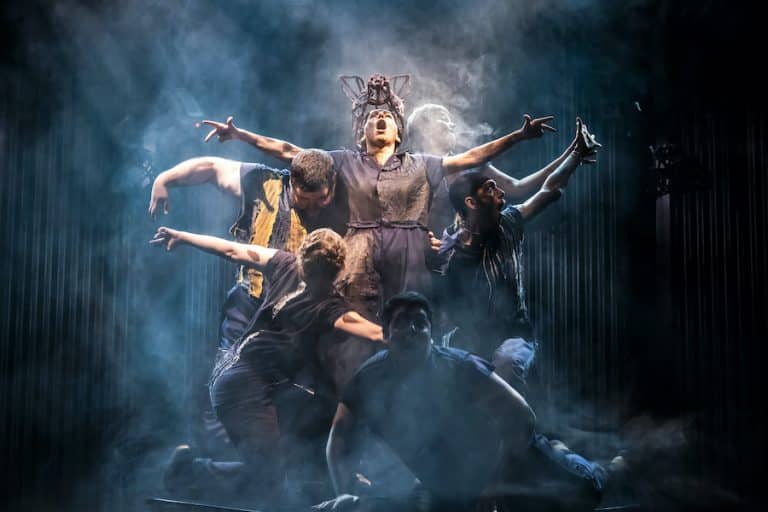
Review: Animal Farm at Octagon Theatre ‘brings Orwell’s dystopian masterpiece to life’

“Sports belongs to everyone” Meet the charity on a mission to ensure sport is for all

The game-changing, free-to-use space for artists and creatives opens

Manchester is a ‘city of sanctuary’ – but what does that mean?
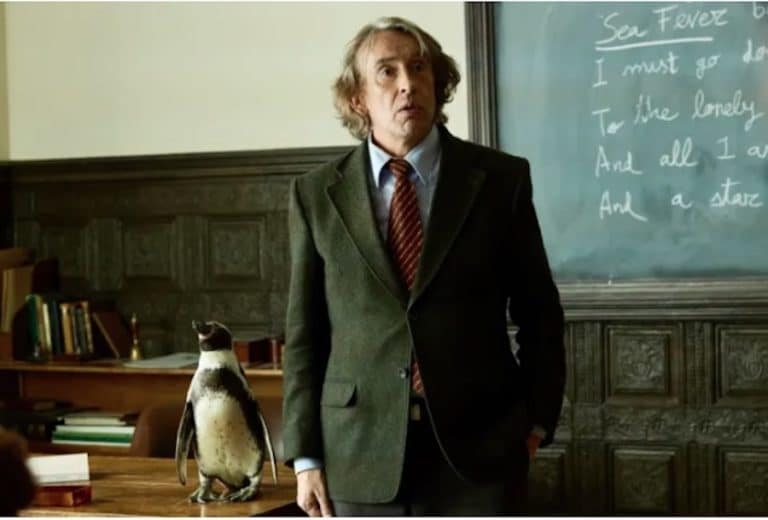
“A spectacular showcase of storytelling” Manchester Film Festival reveals 2025 line up









